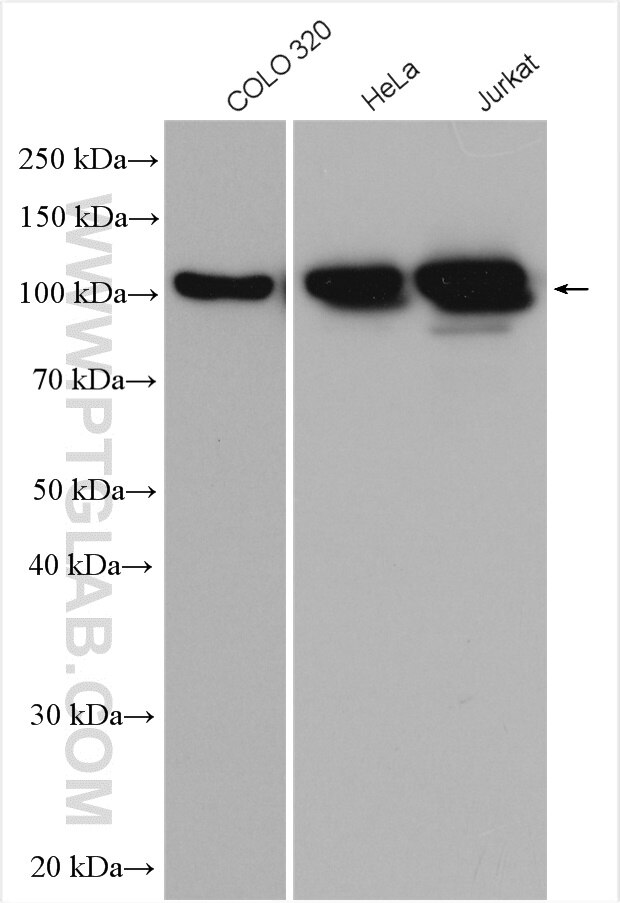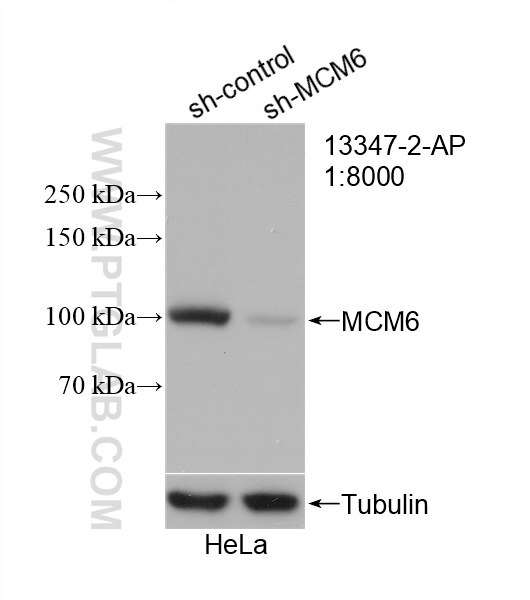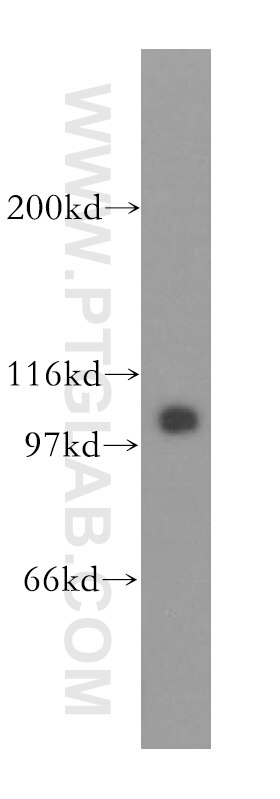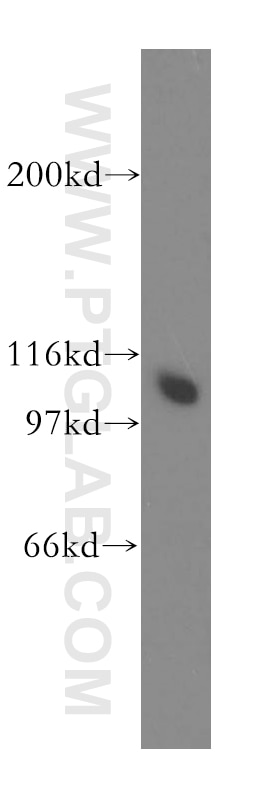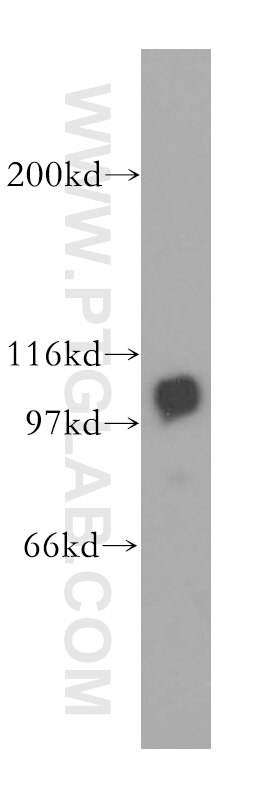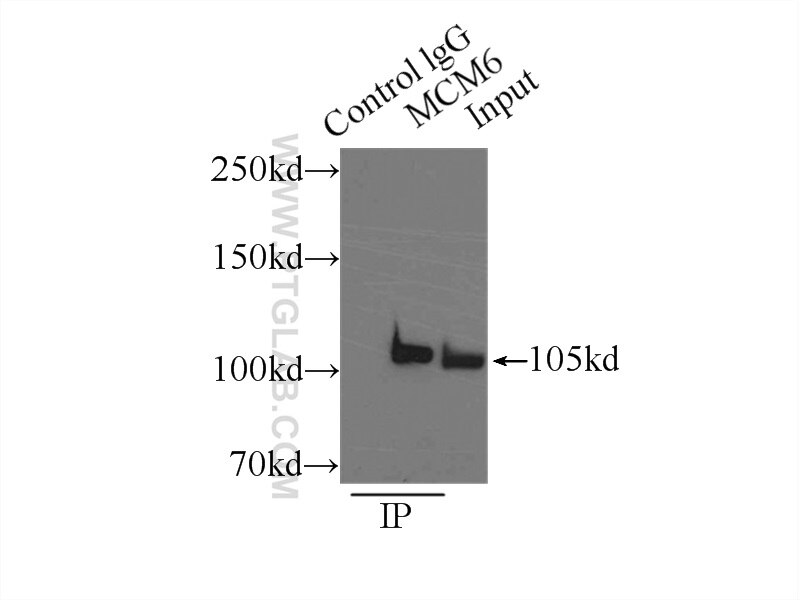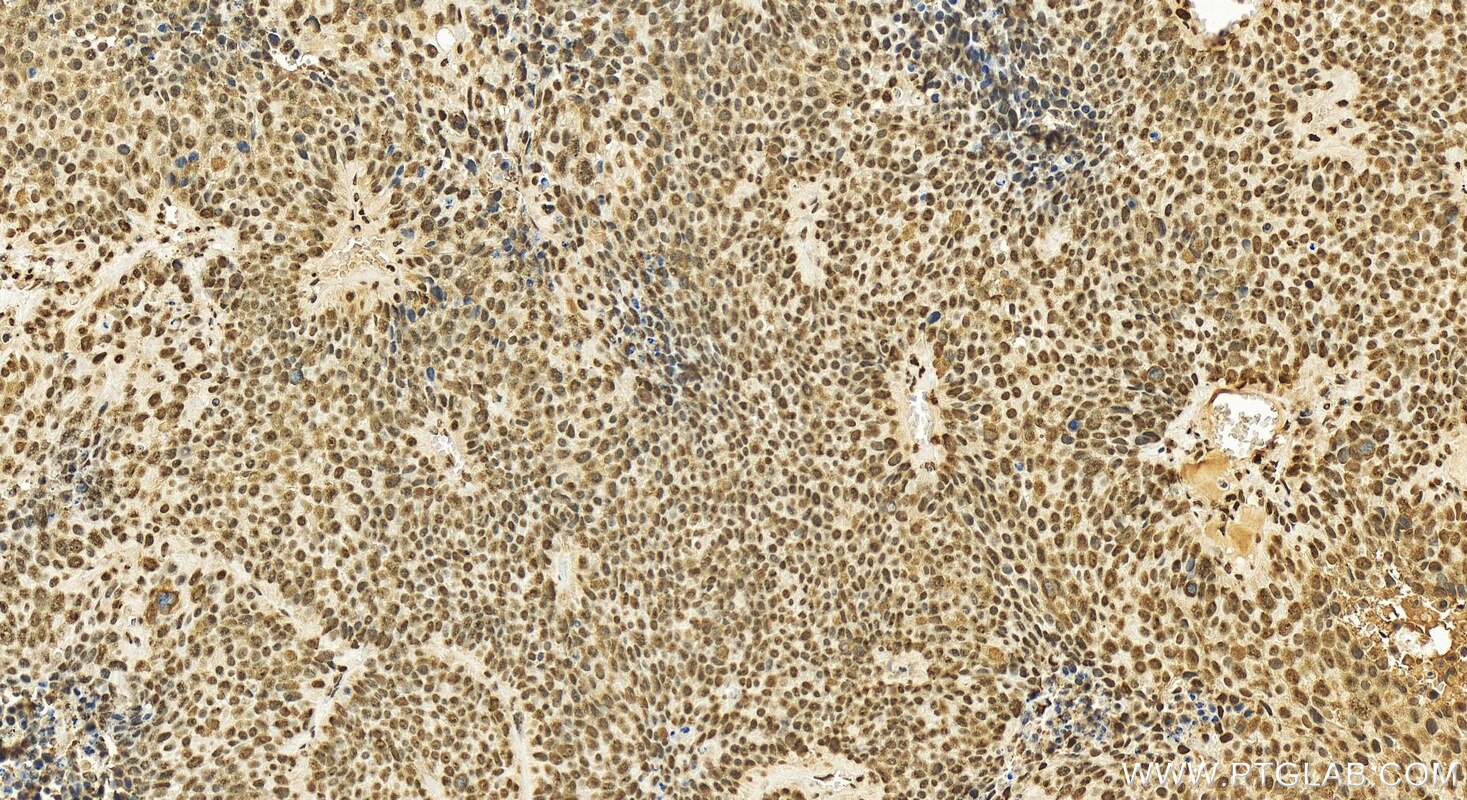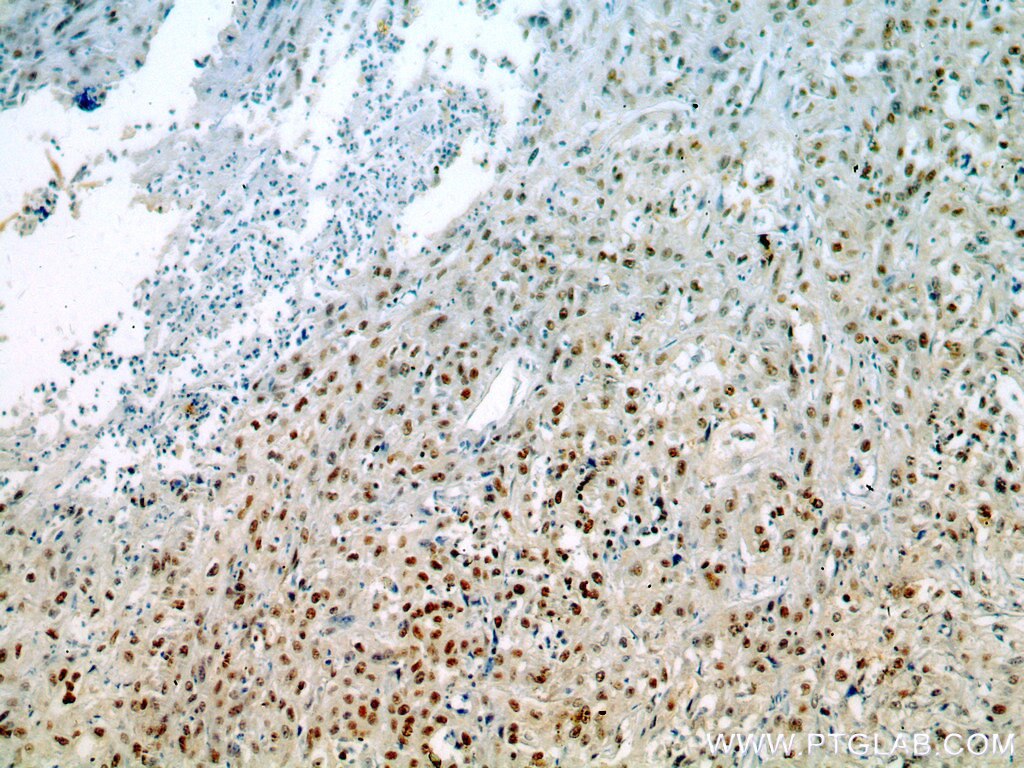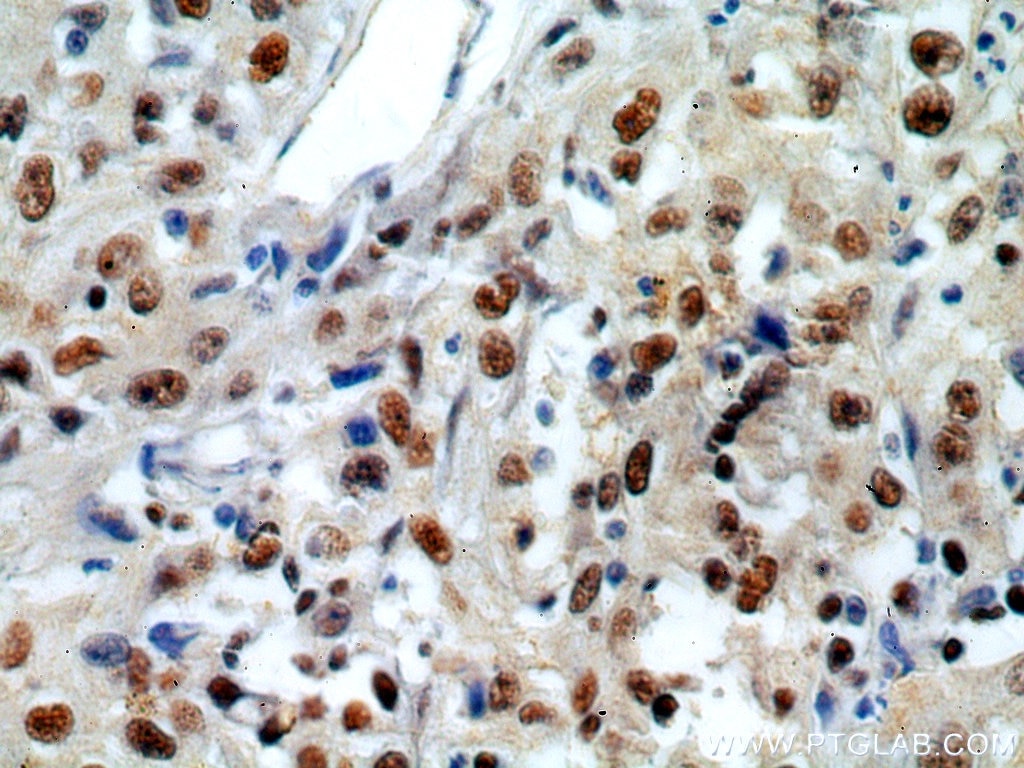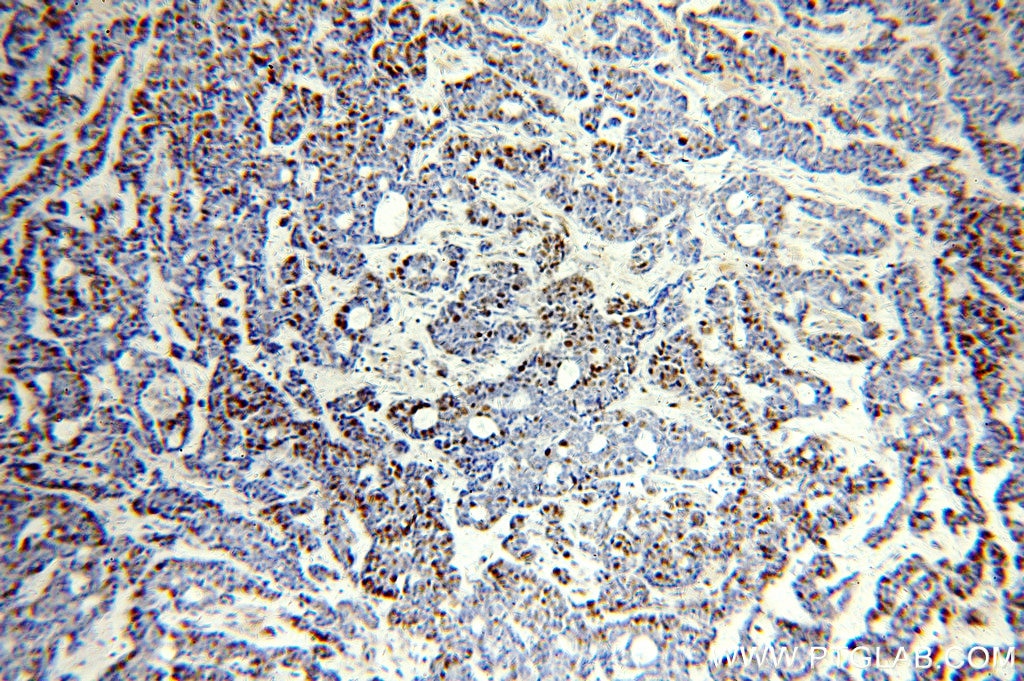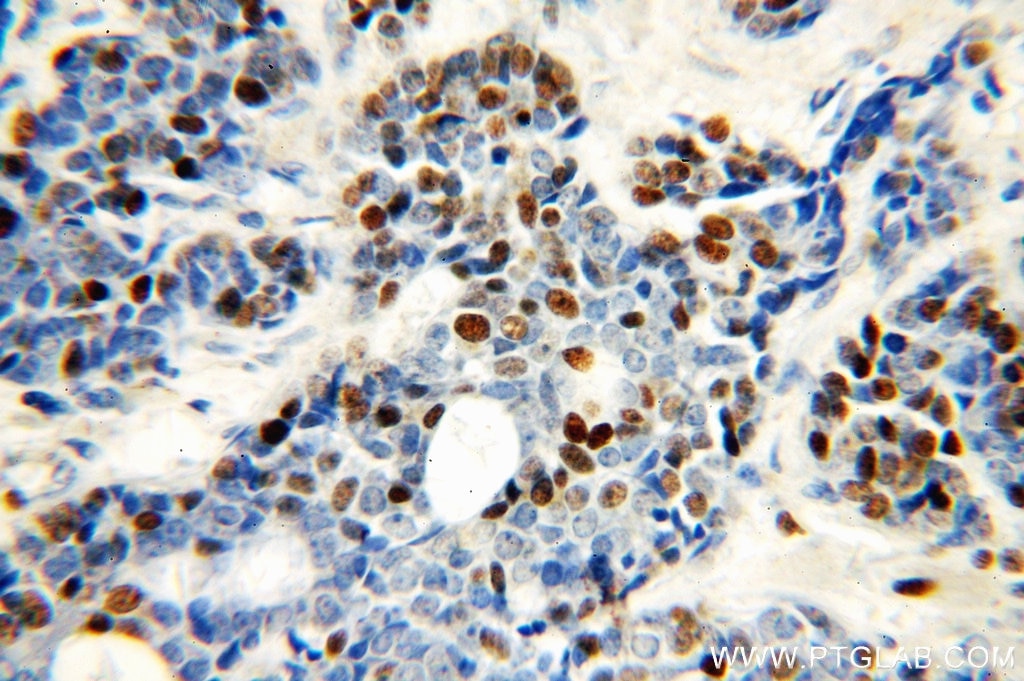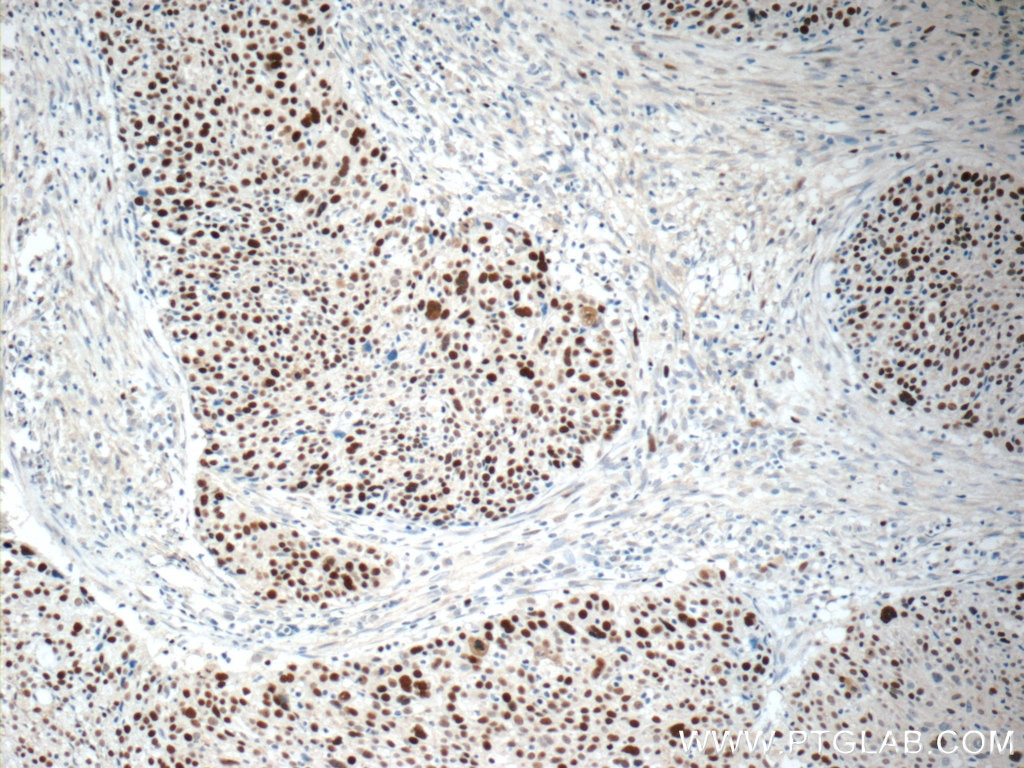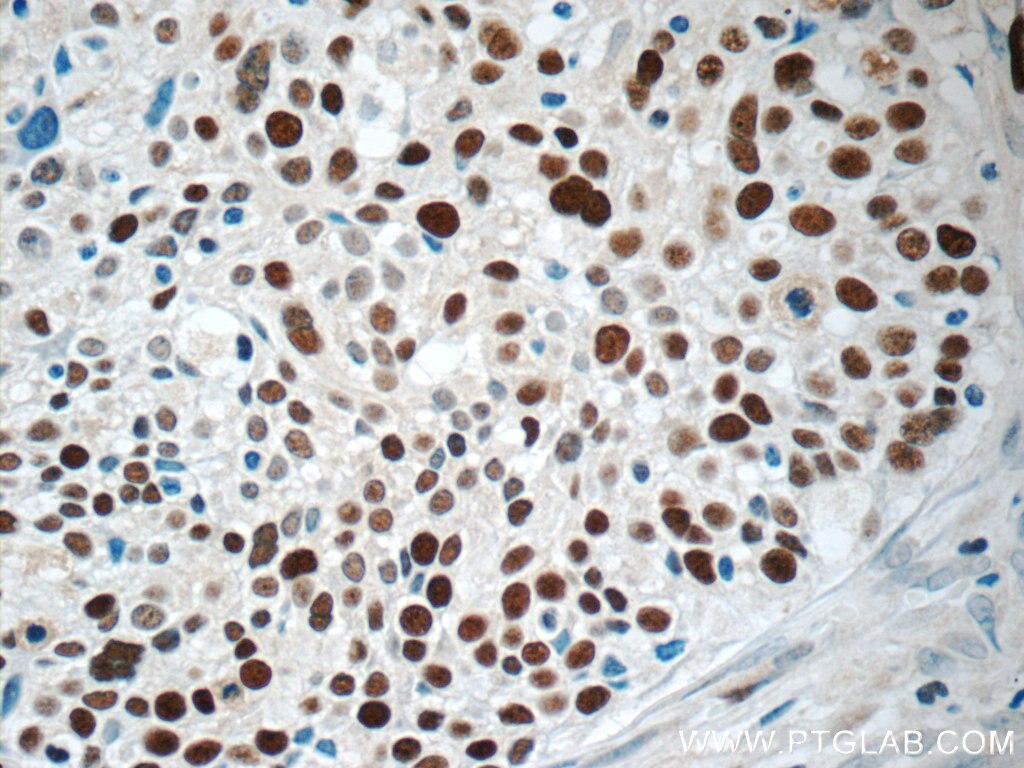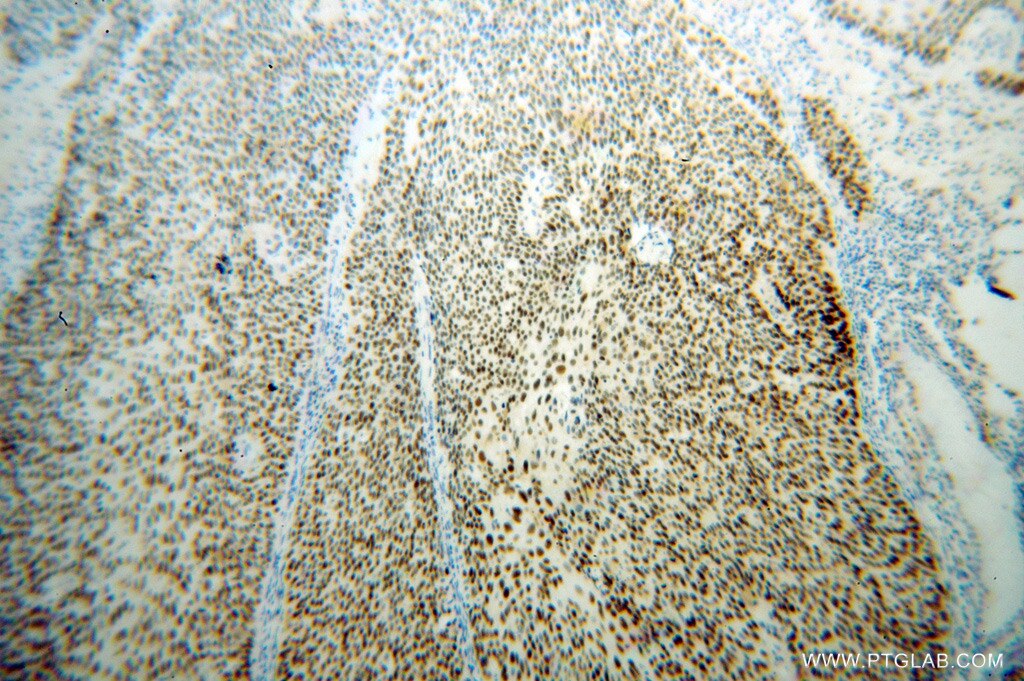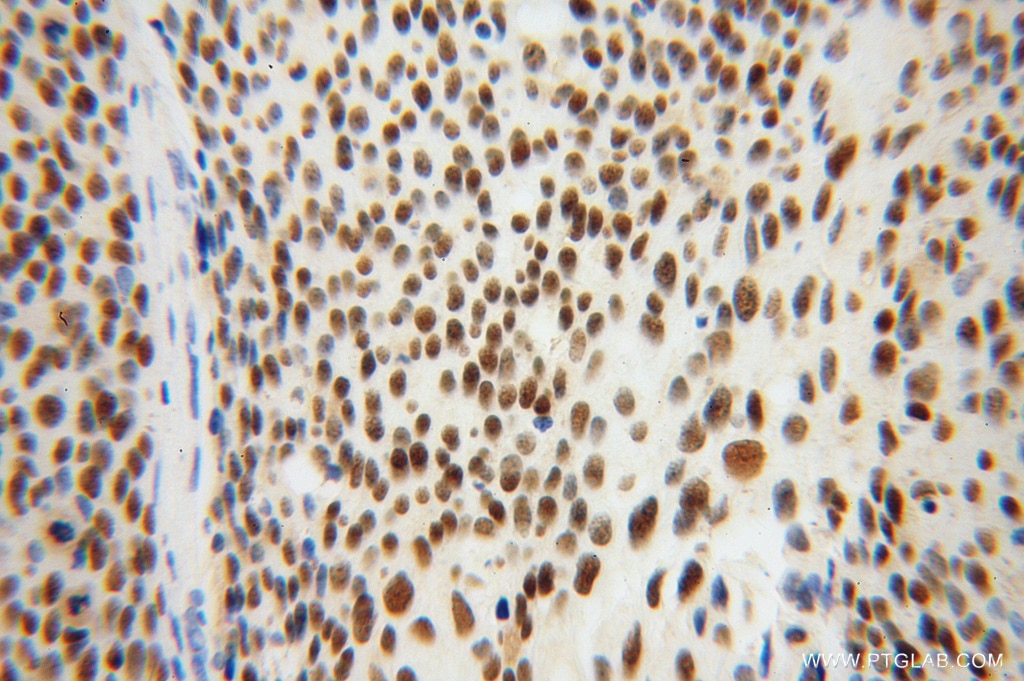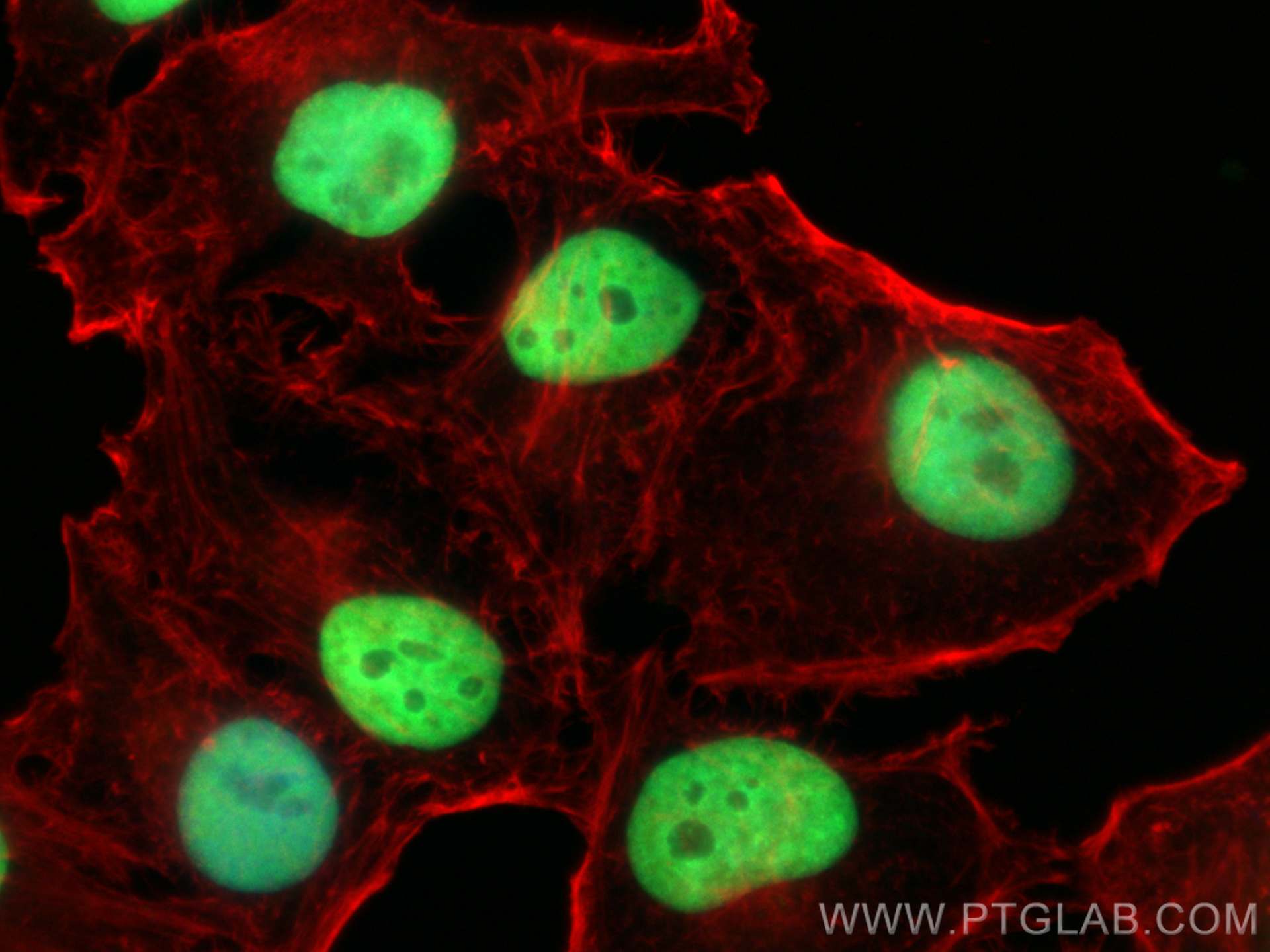Tested Applications
| Positive WB detected in | COLO 320 cells, HeLa cells, mouse ovary tissue, mouse thymus tissue, mouse spleen tissue |
| Positive IP detected in | HeLa cells |
| Positive IHC detected in | human lung squamous cell carcinoma tissue, human cervical cancer tissue, human lung cancer tissue Note: suggested antigen retrieval with TE buffer pH 9.0; (*) Alternatively, antigen retrieval may be performed with citrate buffer pH 6.0 |
| Positive IF/ICC detected in | HeLa cells |
Recommended dilution
| Application | Dilution |
|---|---|
| Western Blot (WB) | WB : 1:2000-1:16000 |
| Immunoprecipitation (IP) | IP : 0.5-4.0 ug for 1.0-3.0 mg of total protein lysate |
| Immunohistochemistry (IHC) | IHC : 1:200-1:800 |
| Immunofluorescence (IF)/ICC | IF/ICC : 1:50-1:500 |
| It is recommended that this reagent should be titrated in each testing system to obtain optimal results. | |
| Sample-dependent, Check data in validation data gallery. | |
Published Applications
| KD/KO | See 4 publications below |
| WB | See 23 publications below |
| IHC | See 10 publications below |
| IF | See 2 publications below |
Product Information
13347-2-AP targets MCM6 in WB, IHC, IF/ICC, IP, ELISA applications and shows reactivity with human, mouse, rat samples.
| Tested Reactivity | human, mouse, rat |
| Cited Reactivity | human, mouse |
| Host / Isotype | Rabbit / IgG |
| Class | Polyclonal |
| Type | Antibody |
| Immunogen |
CatNo: Ag4180 Product name: Recombinant human MCM6 protein Source: e coli.-derived, PGEX-4T Tag: GST Domain: 471-821 aa of BC032374 Sequence: VAIHEAMEQQTISITKAGVKATLNARTSILAAANPISGHYDRSKSLKQNINLSAPIMSRFDLFFILVDECNEVTDYAIARRIVDLHSRIEESIDRVYSLDDIRRYLLFARQFKPKISKESEDFIVEQYKHLRQRDGSGVTKSSWRITVRQLESMIRLSEAMARMHCCDEVQPKHVKEAFRLLNKSIIRVETPDVNLDQEEEIQMEVDEGAGGINGHADSPAPVNGINGYNEDINQESAPKASLRLGFSEYCRISNLIVLHLRKVEEEEDESALKRSELVNWYLKEIESEIDSEEELINKKRIIEKVIHRLTHYDHVLIELTQAGLKGSTEGSESYEEDPYLVVNPNYLLED Predict reactive species |
| Full Name | minichromosome maintenance complex component 6 |
| Calculated Molecular Weight | 821 aa, 93 kDa |
| Observed Molecular Weight | 105 kDa |
| GenBank Accession Number | BC032374 |
| Gene Symbol | MCM6 |
| Gene ID (NCBI) | 4175 |
| RRID | AB_2142537 |
| Conjugate | Unconjugated |
| Form | Liquid |
| Purification Method | Antigen affinity purification |
| UNIPROT ID | Q14566 |
| Storage Buffer | PBS with 0.02% sodium azide and 50% glycerol, pH 7.3. |
| Storage Conditions | Store at -20°C. Stable for one year after shipment. Aliquoting is unnecessary for -20oC storage. 20ul sizes contain 0.1% BSA. |
Background Information
The MCM genes were firstly identified in yeast defective in minichromosome maintenance and have since been shown to have roles in the progression of the cell cycle, and most of them are cell division control genes[PMID: 18096807]. MCM2-7 complex are suggested to be 'DNA licensing factors' which bind to the DNA after mitosis and enable DNA replication before being removed during S phase. Mini-chromosome maintenance 6 (MCM6) is one component of the MCM2-7 complex which is the putative replicative helicase essential for 'once per cell cycle' DNA replication initiation and elongation in eukaryotic cells[PMID: 9305914]. MCM6 single subunit forms homohexamer and contains an ATP-dependent and replication fork stimulated 3' to 5' DNA unwinding activity along with intrinsic DNA-dependent ATPase and ATP-binding activities [PMID:21336027]. The calculated molecular weight of MCM6 is 92 kDa, but the modified MCM6 is about 105 kDa.
Protocols
| Product Specific Protocols | |
|---|---|
| IF protocol for MCM6 antibody 13347-2-AP | Download protocol |
| IHC protocol for MCM6 antibody 13347-2-AP | Download protocol |
| IP protocol for MCM6 antibody 13347-2-AP | Download protocol |
| WB protocol for MCM6 antibody 13347-2-AP | Download protocol |
| Standard Protocols | |
|---|---|
| Click here to view our Standard Protocols |
Publications
| Species | Application | Title |
|---|---|---|
J Hematol Oncol Proteogenomic insights into the biology and treatment of pancreatic ductal adenocarcinoma | ||
Adv Sci (Weinh) Topoisomerase I Inhibition in ETV4-overexpressed Non-Small Cell Lung Cancer Promotes Replication and Transcription Mediated R-Loop Accumulation and DNA Damage | ||
Biomaterials Biocompatible PEGylated Gold nanorods function As cytokinesis inhibitors to suppress angiogenesis. | ||
Elife MCMBP promotes the assembly of the MCM2-7 hetero-hexamer to ensure robust DNA replication in human cells. | ||
Front Oncol METTL3 Promotes the Progression of Gastric Cancer via Targeting the MYC Pathway. | ||
Oncotarget Lamin B2 binding to minichromosome maintenance complex component 7 promotes non-small cell lung carcinogenesis. |

